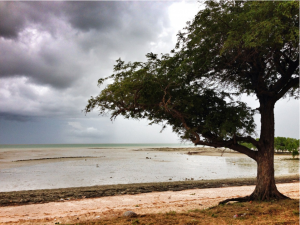Governance is something of a buzz word in the work we are doing. Part of its buzz is that it can mean quite different things to different people. Many of us are involved in talk, research and theory around issues of governance in a way we might not have imagined ten years ago. This might be seen historically as part of the gradual change in government policy from self-determination and reconciliation in the 1980s and 1990s, towards the ‘normalisation’ of Aboriginal people, and the efforts of government to induce civil society to take more responsibility for the work governments have traditionally undertaken. For this work, and especially for Aboriginal individuals and groups to be successful as ‘normal’ citizens, they need to understand and implement good governance, hence its currency in contemporary discourse. Aboriginal people of course, are confident of their good traditional governance practices in many contexts largely unaffected by western governments. It’s where western and Aboriginal practices clash or sit uneasily with each other that the delivery of governance and leadership training is often called for. How can we rethink governance in new or complex ways? What techniques or resources might be useful?
Some researchers at the Northern Institute and the CRN are working in the general area of governance in Northern Australia. We hope that this group will help to foster a growing collective awareness of the types of governance research being carried out within the group, but more particularly to ask together the questions of where our governance research comes from, how we get to be doing it, and how this research changes our position as academics and the realities of the people we work with?
